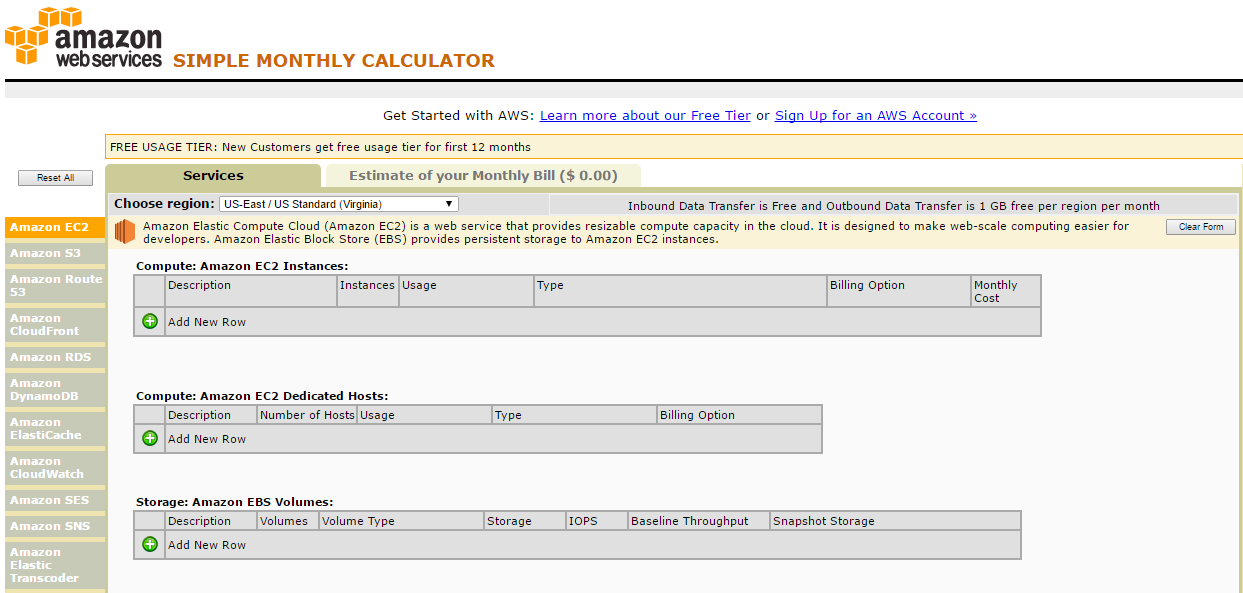AWS costing and infrastructure design

AWS cost pricing, and cloud infrastructure design is some of the most common questions asked by clients interested in the cloud. As part of our offering, we evaluate the cost of maintaining infrastructure on AWS and perform infrastructure design on Amazon Web Services.
Doing an assessment of infrastructure maintenance costs in Amazon AWS on your own is very difficult. Regardless of the advantages of the cloud and the enormity of the services offered by AWS, the economic aspect of the solution is usually the most difficult to assess. How much will services on Amazon cost? The answer to this question is closely linked to your infrastructure design. If you already have your infrastructure we will help you to inventory it and price it accordingly, if not then a blueprint describing what services will be used, how they will be used and what resources and transfers are needed is required for pricing.
The number of components for each service in AWS can be dizzying. Assessing the amount of resources, like cores or RAM or disk, is still possible for an inexperienced person, but the pricing parameters are dozens of times more. Even the choice itself in this respect is difficult, as there are plenty of instance types and at least 3 types of disk and 3 types of file maintenance costs for object-based S3. How do we know the estimated number of disk references, objects in S3, reads/writes to the database, and number of queries to DNS? For us, these things are not a mystery. We can easily guide you through the maze of parameters in AWS, assess maintenance costs, and design your infrastructure. We also maintain a lot of traditional solutions, where we build high-availability solutions on top of popular software and are able to move these types of solutions to the AWS cloud.
AWS costing for infrastructure ownership requires information such as:
- what elements the infrastructure consists of,
- how it is accessed,
- how the various components of the infrastructure are interconnected,
- what resources the individual components use - especially the number of cores, RAM and disk space and type of disks,
- how loaded the individual infrastructure components are,
- whether the load fluctuates periodically, in leaps and bounds or is rather stable,
- what are the development plans for the project, what new elements are planned for the system to be moved,
- whether there are any problems with the infrastructure - performance, scaling stability,
whether you have portable software licenses (e.g. MSSQL, Oracle),
whether you need to increase the availability and uptime of your environment.
We will help you answer all these questions, provide you with a minimum and optimum valuation, and propose solutions to improve your system's uptime and availability.
Pricing AWS costs is not an easy thing to do, but Amazon Web Services provides a free tool in the form of the AWS Simple Monthly Calculator that allows you to estimate AWS costs on a monthly basis. What's more, by using this tool thoughtfully, you can compare different service options and generate significant savings.

If you're developing a new platform or project, we'll help you design it to run efficiently with Amazon AWS, be scalable and redundant.
During the design phase of an AWS infrastructure, we gather similar information, but it mainly relates to things like:
- the operating logic of the application,
- the software components and services used,
- the deployment rules for applications and services,
- the way the applications are used by the audience,
- expected load and traffic during the initial and subsequent phases,
- system access and security,
- relationships between components,
- the load on the components,
- possible load spikes, nature of application use,
- expected availability and planned high availability,
- the need for geolocation of services and their regionalization,
backups, - amount of expected data in the system,
- other relevant system components and usage patterns.
The result of our work is a design that you receive (depending on your needs and the agreed scope):
- a diagram of the suggested architecture with recommended resources (diagram using AWS icons and names),
- a brief description of each infrastructure element and a description of the interrelationships,
- logical network structure (division into subnets including private ones, routing within the infrastructure),
- description of options in the design, if any,
- proposal for security grouping,
- proposal for access to the infrastructure and security of access,
- proposal for the protection of resources,
- a proposal for instance provisioning, autoscaling, and deployment,
- information on the use of high availability,
- a proposal for making backups.



